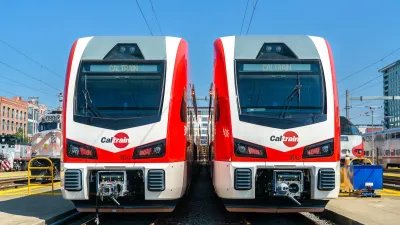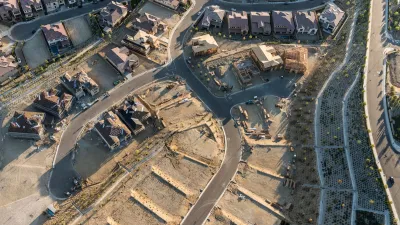Voters will decide on Proposition 4, a climate bond to fund critical state environmental initiatives, including water projects, wildfire risk reduction, sustainable agriculture, and parks to help the state meet its climate goals.

In November, California voters will decide on Proposition 4, a $10 billion climate bond designed to fund a variety of environmental initiatives, including water projects, wildfire risk reduction, coastal resilience, sustainable agriculture, and parks. The bond, which comes in response to recent state budget cuts affecting climate programs, has garnered strong support from environmental groups who argue that it is essential for achieving California's ambitious environmental goals, such as conserving six million acres of land by 2030. According to a recent survey, 59 percent of voters are likely to approve the bond, reflecting growing public awareness of the need for urgent climate action.
Assembly member Lori Wilson, one of the legislators who introduced the measure, noted that the decision to consolidate multiple bond proposals into a single $10 billion initiative was driven by concerns over inflation and voter willingness to support multiple bonds. The bond would be paid off over 40 years through California’s general fund, which is largely supported by tax revenue. Supporters emphasize that this funding is crucial not only for helping communities adapt to climate change but also for reducing climate pollution, both of which are necessary to protect the state from the worsening effects of the climate crisis.
Environmental advocates argue that the bond is vital for ensuring the state can meet its long-term environmental objectives, particularly in light of recent budget constraints. Katelyn Roedner Sutter of the Environmental Defense Fund warned that rejecting the bond could jeopardize California’s ability to address pressing climate challenges. As the impacts of climate change become increasingly apparent in the form of wildfires, extreme heat, and flooding, proponents believe that the bond will resonate with voters who recognize the need to protect their communities and the environment.
FULL STORY: A look at the $10B climate bond California voters will decide on in November

Manufactured Crisis: Losing the Nation’s Largest Source of Unsubsidized Affordable Housing
Manufactured housing communities have long been an affordable housing option for millions of people living in the U.S., but that affordability is disappearing rapidly. How did we get here?

Americans May Be Stuck — But Why?
Americans are moving a lot less than they once did, and that is a problem. While Yoni Applebaum, in his highly-publicized article Stuck, gets the reasons badly wrong, it's still important to ask: why are we moving so much less than before?

Research Shows More Roads = More Driving
A national study shows, once again, that increasing road supply induces additional vehicle travel, particularly over the long run.

Which US Rail Agencies Are Buying Zero-Emissions Trains?
U.S. rail agencies are slowly making the shift to zero-emissions trains, which can travel longer distances without refueling and reduce air pollution.

San Diego School District Approves Affordable Housing Plan
The district plans to build workforce housing for 10 percent of its employees in the next decade and explore other ways to contribute to housing development.

Lawsuit Aims to Stop NYC’s ‘City of Yes’ Zoning Reforms
A lawsuit brought by local lawmakers and community groups claims the plan failed to conduct a comprehensive environmental review.
Urban Design for Planners 1: Software Tools
This six-course series explores essential urban design concepts using open source software and equips planners with the tools they need to participate fully in the urban design process.
Planning for Universal Design
Learn the tools for implementing Universal Design in planning regulations.
City of Moreno Valley
Institute for Housing and Urban Development Studies (IHS)
City of Grandview
Harvard GSD Executive Education
NYU Wagner Graduate School of Public Service
City of Cambridge, Maryland
Newport County Development Council: Connect Greater Newport





























